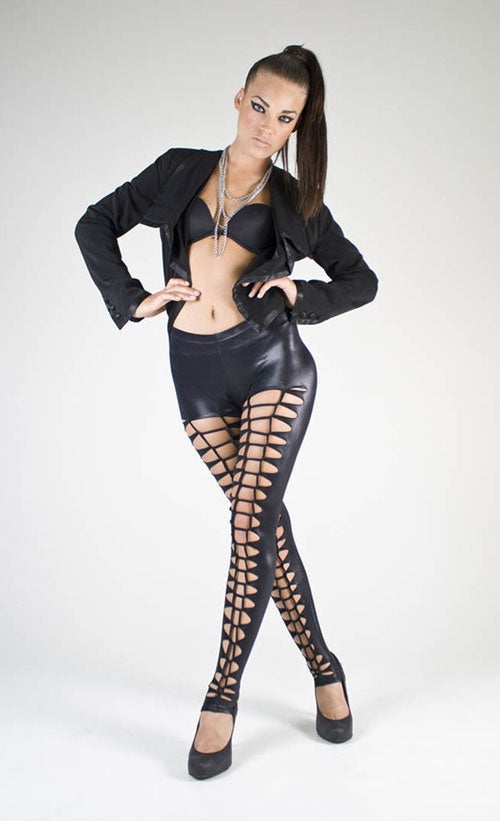Inspired, or fashion theft?
Designers keen to strip out copycat clothing are turning to the law

Your support helps us to tell the story
From reproductive rights to climate change to Big Tech, The Independent is on the ground when the story is developing. Whether it's investigating the financials of Elon Musk's pro-Trump PAC or producing our latest documentary, 'The A Word', which shines a light on the American women fighting for reproductive rights, we know how important it is to parse out the facts from the messaging.
At such a critical moment in US history, we need reporters on the ground. Your donation allows us to keep sending journalists to speak to both sides of the story.
The Independent is trusted by Americans across the entire political spectrum. And unlike many other quality news outlets, we choose not to lock Americans out of our reporting and analysis with paywalls. We believe quality journalism should be available to everyone, paid for by those who can afford it.
Your support makes all the difference.The number of high-street shops bringing legal action against their rivals for copying their designs has risen four-fold since the start of the recession, according to top copyright infringement lawyers.
"In the last couple of years the number of these cases we have been handling has at least quadrupled," said Stephen Sidkin, a partner in Fox Williams Fashion Law Group. "And other firms have certainly increased their work this year.
"It is a consequence of the recession: fashion brands are increasingly looking to see what is selling well, and if that is not part of what they are offering customers they are being 'inspired' by rivals."
While stores have long looked to the catwalk for inspiration – top designer's collections barely make it down the runways of London and Paris before lookalikes appear on the rails of mainstream stores – such widespread copying of high-street rivals is a relatively recent phenomenon.
Upmarket clothing chain All Saints is currently taking legal action against River Island for intellectual property infringement, claiming the retailer has copied numerous pieces from its men's and women's collections, including a £35 T-shirt bearing a heart motif, a £195 leather shirt, and a £33 tulip-shaped skirt. River Island has said it intends to defend the court proceedings.
"Your design is the lifeblood of your brand," said Jessica Brown, editor of fashion magazine Drapers. "If people copy your designs and sell them at a cheaper price then people are less likely to pay the premium.
"If you want to protect your brand and bring legal action then that costs money, which may well be prohibitive for start-ups."
The case is the latest in a spate of similar actions brought against retailers in the past year. Supergroup – which owns Superdry, a casual-wear brand specialising in hoodies and streetwear – received a settlement in May from Primark over the alleged copying of one of its leather jackets, which has been worn by footballer David Beckham.
US fashion lawyers also report increasing numbers of people claiming copyright infringement of their designs. Mark Schonfeld, of lawyers Burns and Levinson in Boston, Massachusetts, said: "There has been an increase in cases of this kind, but we have a fairly expensive litigation system in the US, so the recession may have put people off taking any action."
While many top designers turn a blind eye to high-street copies of their work, Jimmy Choo has pursued Marks and Spencer, Warehouse and New Look for copyright infringement in the past, while in 2007 Topshop was forced to pay damages to French fashion house Chloé in a dispute over a yellow dungaree dress.
Actress and fledgling fashion designer Lindsay Lohan was last week accused of copying designs for the expansion of her leggings line 6126, which was launched in 2008.
Fashion commentators noted similarities between a preview sketch of one of Lohan's new designs and a dress with geometric patterns by designer Jen Kao, which Lohan was photographed wearing last month. While Lohan, whose debut as creative director for French fashion house Emanuel Ungaro was panned in October, has yet to respond to the claims, a 6126 spokeswoman said: "The alleged 'copying' claims made by these companies are false and have absolutely no merit or validity whatsoever. Any alleged similarities are purely coincidental."
Join our commenting forum
Join thought-provoking conversations, follow other Independent readers and see their replies
Comments